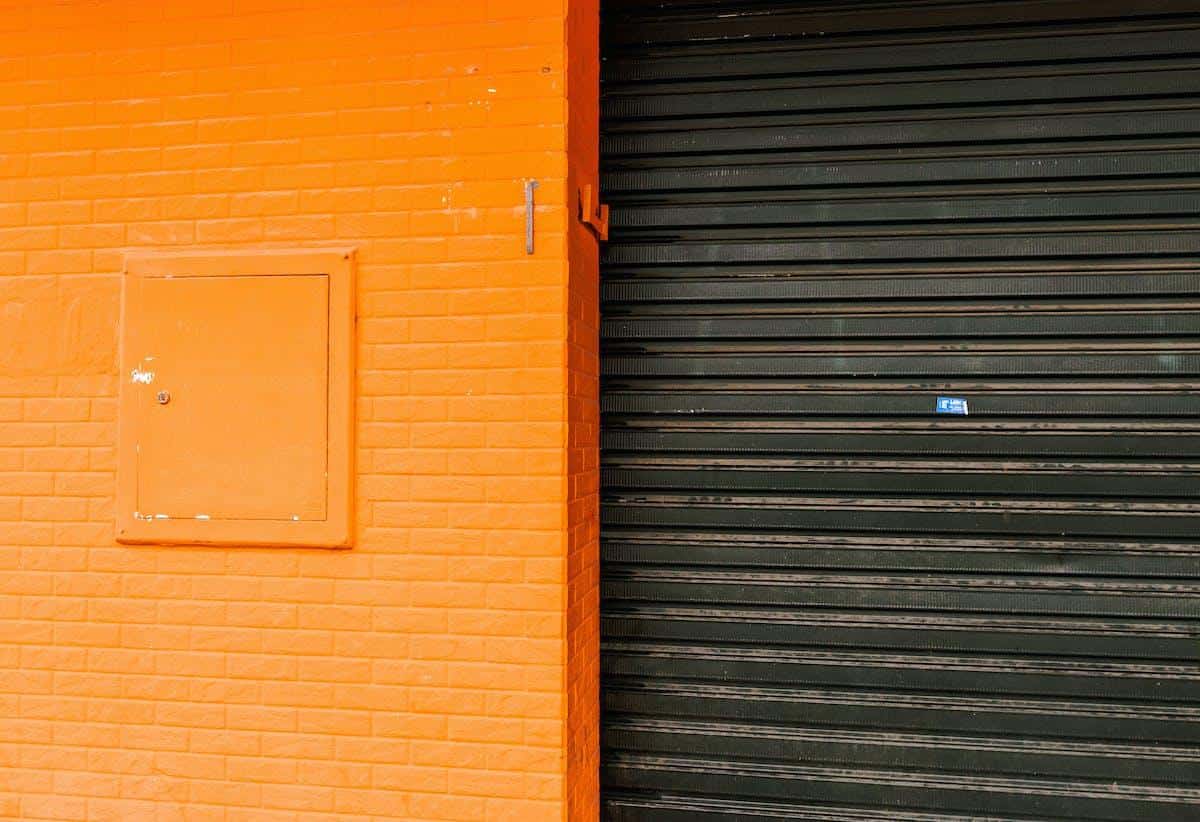Understanding the importance and protocol for jailhouse visitation Orange County CA can be vital for maintaining family connections and providing emotional support to incarcerated individuals. Taking a compassionate approach towards these visits can help alleviate common anxieties associated with such experiences while uplifting the spirits of our dear ones behind bars. This article aims to provide extensive guidance on navigating this challenging journey, emphasizing an empathetic lens, legal awareness, and careful preparation.
Visitation in any correctional facility is a significant aspect of the incarceration system. It is during these times that individuals serving time in jail can receive comfort and support from their loved ones, creating life-sustaining connections they so desperately need during their incarceration period.
Providing familiar faces amidst alienating surroundings not only assists with the emotional well-being of these individuals but also plays an active role in successful rehabilitation efforts post-release. However, it’s crucial to recognize that visiting a jailhouse differs greatly from regular visits or interactions, making it important to understand its intricacies.
Structured within legal boundaries and laden with procedural requirements like scheduling or specific rules about conduct during visits – visiting an Orange County prison in California can seem daunting. The process might seem even more challenging if there are children involved or feelings of fear or confusion within visitors over what their rights might be during these encounters.
Having appropriate knowledge about the necessary steps and how to maximize the benefits derived from them can turn these visits into meaningful opportunities for connection building. This guide aims to demystify various aspects related to jailhouse visitations in Orange County, helping you confidently navigate your way through your first encounter or subsequent visits alike.
Jailhouse Visitation Orange County CA
Understanding the Rules for Jail Visitation
When planning to visit a loved one in an Orange County jail, it is essential to understand the rules and regulations governing those visits. Unlike social visits in public or private spaces, jailhouse visits are subject to stringent laws and policies designed to maintain order, security and discipline within the correctional facility. Every visitor must respect these norms which typically include restrictions on timings, dress code, physical contact and item exchange.
Each of the five main county jails-The Central Men’s/Women’s Jail, James A. Musick Facility, Theo Lacy Facility, Central Juvenile Hall and Youth Guidance Center-has their specific guidelines; however, generally visitors must be approved by jail staff before admission. All visitors are subject to search before entering the visiting area and must present a valid ID.
Navigating the Legalities
Understanding the legal framework surrounding jailhouse visitation in Orange County CA is key as it can often be complex and confusing. However, do note that while visitation is a privilege extended by most institutions, also acting as a vital linkage between inmates and society supporting rehabilitation efforts – it is not a legal right.
Timings of visitations differ depending on whether an individual has been sentenced or not. Pre-trial detainees tend to have several visitation opportunities per week while sentenced inmates have more limited access. To protect both inmates’ rights but maintain order within facilities – unscheduled drop-in visits are often prohibited; hence preparation beforehand matters.
Moreover, attorney-client meetings or other confidential professional visits (such as clergy or counselors) fall under another set of regulations allowing greater access given they fulfill certain mandatory protocols in place to ensure the integrity of confidential discussions.
The Consequences of Disregarding the Rules
Disrespecting or ignoring protocols can lead to severe consequences such as suspension or cancellation of visiting privileges for either individual or all visitors, at the discretion of jail officials. Visitors who refuse to leave the premises after visiting hours end or cause a disruption could be charged with trespassing or disorderly conduct and subject to criminal charges.
In extreme cases, contraband involvement could lead to felony charges for both inmate and visitor. Therefore, following every rule diligently is critical not just for maintaining your visitation rights but also for preventing potential legal troubles.
Essential Tips for First-Time Visitors
Visiting a loved one in jail for the first time can be an overwhelming experience. Understanding the rules and etiquette of jailhouse visitation can make the process smoother and help maintain an emotional connection during a challenging time. In Orange County, California, both county jails and state prisons have specific guidelines that must be followed.
Firstly, it is important to familiarize yourself with the dress code. Violations of the dress code could prevent your visit from occurring. While policies may vary slightly by facility, generally clothing should not identify you as gang-affiliated or be provocative in any way.
It’s advisable to wear modest and conservative attire that does not contain metal (which could set off metal detectors). It’s also worth noting that uniforms similar to those worn by inmates or law enforcement personnel are prohibited because they might cause confusion about who is staff or an inmate.

Understanding your rights as a visitor is crucial too. Jail facilities are governed by federal laws that lay out the boundaries for jail officials and protect visitors’ civil rights under United States Constitution – particularly under Fourth Amendment which guards against unreasonable searches and seizures.
If you feel like your rights were violated during any part of your visit, make sure to document what happened and report it immediately to an authority within the jail system, or consult with a legal professional who specializes in this area.
| Tip | Description |
|---|---|
| Dress Code | Modest attire that does not contain metal materials or resemble inmate uniforms. |
| Rights | All visitors have certain rights protected by Federal law – such as protection from unreasonable searches. |
During these visits, it’s important to remember why you’re there: emotional support plays a crucial role in maintaining an inmate’s mental health and can significantly improve their chances of smooth reintegration upon release. Be patient, understanding, and keep conversations constructive and positive. Avoid discussing incriminating details about their case; remember that visitations are often recorded or monitored.
| Tip | Description |
|---|---|
| Mental Health Support | Emotional support through visits is important for an inmate’s mental health. |
| Conversation Topics | Avoid discussing incriminating details as visits may be recorded or monitored. |
In this difficult time, your presence alone can provide great comfort to incarcerated loved one. It will aid their resilience through the system and show them they’re not forgotten by the outside world.
Navigating the Scheduling Process for Jailhouse Visitation Orange County CA
Understanding the Visitation Schedule
When planning to visit an inmate in Orange County, CA, one of the first things you’ll need to understand is the visitation schedule. Each correctional facility implements different visitation hours based on several factors such as the security level of inmates, housing assignment, and operational demands.
It is essential that visitors check with the specific jail for exact times and days of visitations. You can often find this information on the county’s official website or by contacting them directly via phone.
Note that some facilities may operate under a fixed schedule while others have rotating schedules, where visiting days shift depending on weeks or even months. Some jails also divide their visitation hours into slots designed for particular categories like immediate family members, friends, legal representatives etc.
Booking a Jailhouse Visit
Once you know when you can visit, the next step is to book your appointment. In Orange County’s correctional facilities, visitors are typically required to schedule their visits in advance. A request must be lodged at least 48 hours prior but no longer than 30 days before your desired date.
Visitors can mostly make reservations online or by following an automated telephone system procedure designed by each facility. Be prepared with necessary information about yourself (e.g. name and contact details), as well as about the inmate you intend to visit (name or ID number). Remember to confirm your booking before arrival and be aware of any changes or cancellations that may take place due to prison circumstances.
Complying With Inmate Visitation Policies
Apart from making appointments and dealing with shifting schedules, navigating through jailhouse visitation also involves adhering strictly to various policies set out by Orange County jails. These rules govern aspects such as dress code, items allowed during visits, visitor behavior, and protocols such as checking-in procedures.
Infringement upon any of these policies can lead to cancellation of your visit, a temporary or even permanent ban on future visits. Therefore, it is highly beneficial that you familiarize yourself with all these rules and follow them carefully throughout the process. To find out about these guidelines, check the jail’s official website or consult directly with the facility’s staff.
Cultivating Positivity
Jailhouse visitation can be an emotionally fraught experience, especially if it’s the visitor’s first time. Maintaining a positive mindset during these circumstances is key to getting the most out of jail visits.
Beyond being a connection to the outside world for inmates, visitors are also often a beacon of love and support, which can significantly improve inmates’ emotional well-being. In turn, positive visits can give family members or close friends reassurance about the inmate’s condition and increase their resolve to continue with regular visits.
To nurture positivity during your visit, focus on aspects that will uplift rather than put down your loved one incarcerated in Orange County. Engage in conversations that steer clear from interrogations and provocations that may agitate your loved one.
It might be helpful to talk about amusing occurrences at home or light-hearted topics that would bring some joy into the room. Developing such conversation habits not only makes ongoing interaction more enjoyable but also allows both parties comfortable spaces where they are reminded of each other’s affection despite physical separation.
Encouragement plays a crucial role as well – remind your loved one continuously of his or her worth, irrespective of their current situation. Reinforce this by talking about potential rehabilitation activities they could venture into – such as studying opportunities available inside the jail, possible recreational activities which could help them become better individuals when they reintegrate into society later on.
Gesture small acts like gift-giving or simply maintaining wholehearted eye contact during conversations – such acts go a long way in showing your committed support for your loved one who is likely facing challenging periods adjusting within behind bars.
Remember, cultivating positivity ultimately impacts not just you and your loved one; it extends towards diffusing negativity surrounding jails and helps build barriers against mental health stigma associated with time spent behind bars. As you conduct yourself appropriately during visitations and navigate through the ambiance positively, let remembrance prevail over forgetfulness – it takes love and courage to persevere.

Children and Jailhouse Visitations
When faced with the difficult task of bringing children to visit a loved one in jail, it is essential to approach the situation with care and consideration for their emotional well-being. The first step involves an honest conversation about the circumstances. Age-appropriate information about why their loved one is in jail can help assuage potential fears and confusion. Furthermore, framing it within the context of positive behavior and consequences could steer this challenging situation as a teachable moment.
The visitation experience itself needs careful planning. Firstly, preparing kids for the physical environment they will be entering – metallic interiors, security checks, barred windows – could help prevent possible shock or anxiety during the visit.
Illustrations or picture books depicting these scenarios in a gentle way might be helpful tools for younger children, while older ones might benefit from specific descriptions and reassurances about safety measures in place to protect visitors. Lastly, understanding that it’s okay to express emotions like sadness or anger after visiting can provide children with a healthier outlet to process their feelings.
Specific policies regarding child visitations often vary across different facilities; therefore, thoroughly checking guidelines beforehand ensures smooth visitation without unnecessary breaches. Make sure to understand stipulations around minors’ identification cards if necessary, appropriate dress codes specially laid out for young visitors, and any restrictions around toys or personal items they might wish to bring along.
| Preparation | Description |
|---|---|
| Honest conversation | Provide age-appropriate information about why their loved one is in jail |
| Visitation Environment | Familiarize them with prison environment prior to the visit using illustrations or specific descriptions |
| Emotional Processing | Assure them it’s normal to express emotions after the visit and provide a safe space for doing so |
| Jailhouse Policies | Check specific guidelines around identification cards, dress codes, personal items beforehand |
Resources for Support Beyond Visits
Understanding the Need for Support Beyond Visits
Jailhouse visitation is an essential aspect of maintaining family bonds amidst the stress and difficulty associated with having an incarcerated loved one. However, dealing with this situation extends beyond physically visiting a jailhouse in Orange County, CA. Throughout this journey, counseling services and support groups can offer crucial emotional assistance to families and friends bearing this unique burden.
These services provide platforms where individuals can share feelings, experiences, help each other cope with emotions like frustration, sadness or confusion. It’s a space where everyone involved gets to express and learn resilience, empathy, and how to gain perspective.
The Role of Counseling Services
Counseling for families with a loved one in jail can provide much-needed emotional support. It offers room for individual members to share their feelings confidentially without fear of being judged or misunderstood. Within Orange County, you’ll find several organizations offering these counseling services such as:
- The Center for Individual & Family Therapy (CIFT)
- Eldorado Community Service Centers
- OC Links Information & Referral Line
These spaces offer licensed mental health professionals equipped to guide families through the emotional rollercoaster that often comes with having an incarcerated relative.

Support Groups: A Shoulder to Lean On
Beyond professional counseling are social circles of people who understand exactly what you’re going through because they are in the same situation – support groups. Unlike therapy, support groups lend peer comfort fueling a feeling of belonging rather than isolation since every member shares similar experiences.
Orange County has numerous support groups aimed at helping relatives and friends of incarcerated individuals deal with their situations constructively. Some well-established ones include:
- Celebrate Recovery – Prison Ministry Support Groups,
- National Resource Center on Children and Families of the Incarcerated,
- Prison Fellowship (PF).
These groups typically have structured programs helping members navigate their journey effectively as they access reliable information, guidance, and companionship within the group. Supporting your loved one can be emotionally draining. Support groups provide a means to replenish and recharge, therefore ensuring that you can remain strong for them while also taking care of your own emotional health.
The Role of Legal Representation During Jailhouse Visitation
The presence and role of legal representation during jailhouse visitation can indeed be of great benefit to both inmates and their families. Legal representatives, like attorneys, have a deep understanding of the law and procedures related to jail visits. They can advise on rights protections during visits, facilitate communication between incarcerated individuals and their loved ones, and even oversee interactions to ensure compliance with the jail rules.
A significant benefit of having legal counsel during a jail visit is the protection it provides for both inmates’ rights and visitors’ rights. For instance, lawyers can advise on the right way to communicate within the remits of prison rules.
They can also act as an avenue to report any mistreatment or any infringement of rights that might occur. Moreover, legal representatives may intervene if they deem that an inmate’s rights are being violated, such as limitation to attorney-client privilege or overt surveillance during consultations.
- Advisory role: Attorneys play an important advisory role during visitations. They are well versed in laws, regulations, and inmate rights pertinent to jailhouse visits in Orange County CA. Therefore, they provide both the inmates and their families with valuable information that contributes towards smooth visitations.
- Advocacy Role: Lawyers advocate for inmates by ensuring their right to fair treatment is upheld during visits. They also aid in voicing complaints concerning improper conduct either from inmates’ side or from correctional officers.
- Navigational Role: The legal process involving incarceration can often be complex and challenging for many people to comprehend fully without professional assistance. Attorneys can help navigate through this process by offering clear explanations about various aspects that may be unclear.
Lawyers can also aid in arranging special visitations when necessary under certain circumstances like severe illness or other emergencies. Thus introducing another layer of support for those going through an already challenging situation – having a loved one incarcerated.
It is crucial to remember that the goal of having legal representation during jailhouse visitation is not to bypass any rules or regulations, but to ensure proper adherence with clear understanding, and to facilitate as smooth an experience as possible for everyone involved.
Wrapping Up
Navigating the jailhouse visitation process in Orange County can be challenging, but it is a necessary part of supporting your loved ones during their time of incarceration. It’s through these visitations that we build resilience and hope, connecting with our loved ones in a tangible way that might help them feel less isolated and foster a sense of connectedness. These connections can be crucial to an individual’s mental state and reintegration into society post-incarceration.
Visitation, while not always easy, presents an opportunity to provide emotional support and encouragement to those who are incarcerated. By graduating through the complexities of scheduling visits, adapting to jailhouse etiquette, and facing the internal conflicts such engagements may induce, visitors develop resilience themselves. This act testifies to your love for them and your readiness to stand by them despite the difficulties. Remembering that compassion is at the core of this experience helps maintain perspective.
However tough these challenges appear, resources abound in Orange County for individuals seeking advice or extra assistance in navigating this phase. Support groups, counseling services, legal representation allies – all exist ready to lend support when you need it most.
Above everything else lies hope – hope for better days ahead; hope built on love and family bonds; hope that underlines every aspect of visitation from beginning till end. So continue visiting although there may be times you falter under its weight because through visitation you reaffirm their importance in your life reinforcing their self-worth – a sentiment they need as they navigate their own reality within the walls they occupy currently.
